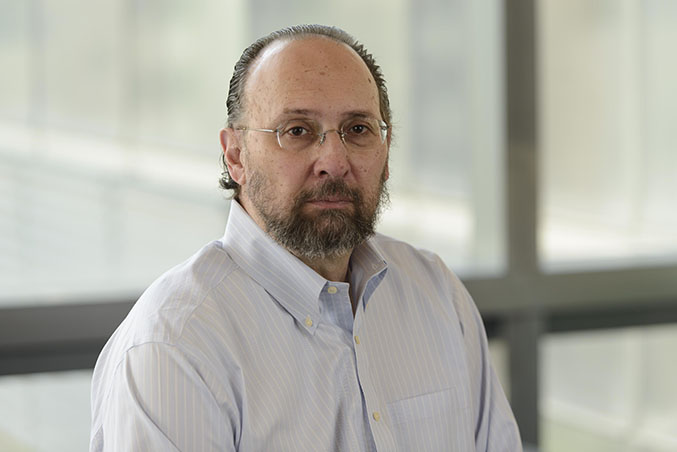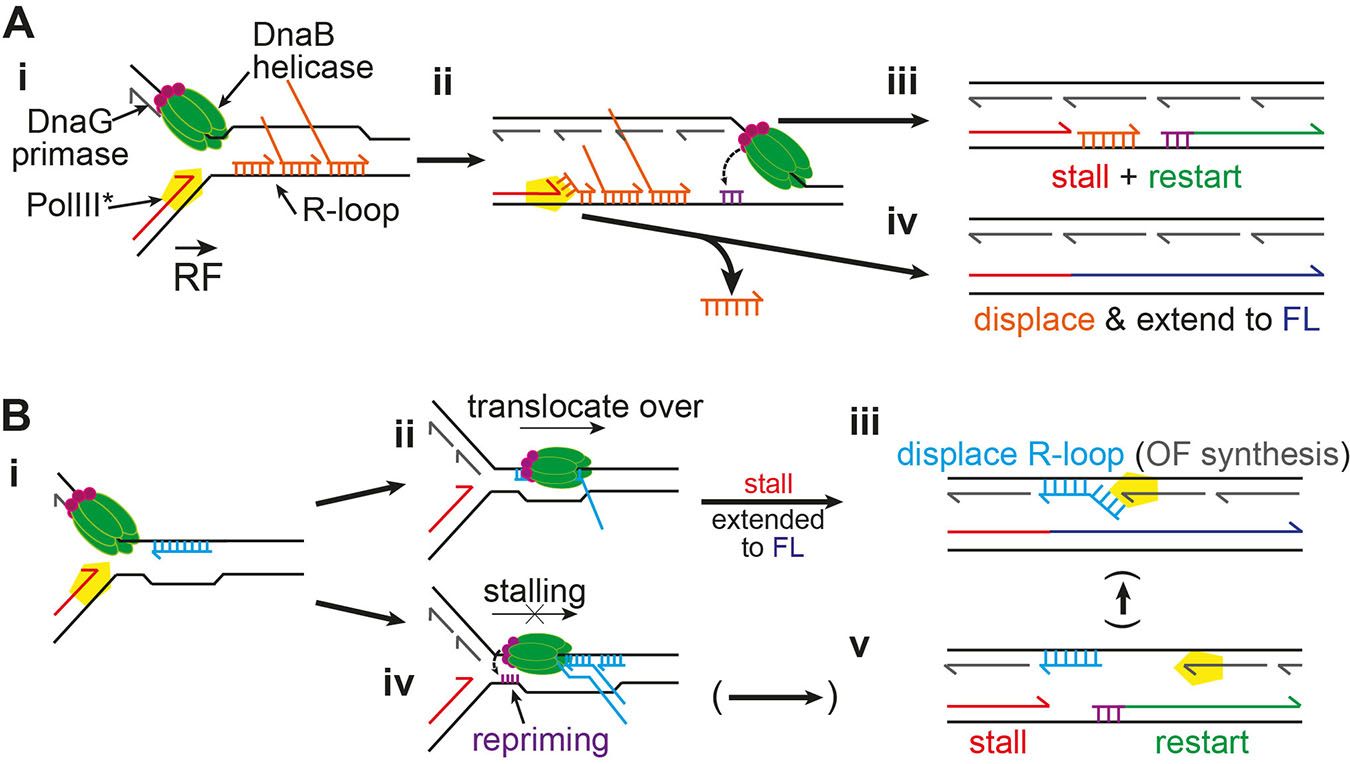
Research
Research in my laboratory centers on: (i) the events that occur when the replisome (the multi-component enzyme machine that replicates chromosomal DNA) encounters blockages to replication fork progression, and (ii) the mechanisms by which chromosomes are condensed and separated during cell division. Our studies on the consequences of replication fork blockage and restart utilize purified replication, recombination, and transcription proteins in various well-defined systems reconstituted in vitro that model all steps of these events. The figure shows how the E. coli replisome easily bypasses R-loops on either template strand. We have recently shifted our primary focus from using bacterial proteins to using human proteins to develop these in vitro systems. Our studies on chromosome condensation and segregation utilize a combination of biochemical, cell biological, and molecular genetic approaches.
Figure 1

Current Projects:
- Initiation of human DNA replication
- Reconstitution of human replisome activity
- Consequences of replication-transcription conflicts
- Analysis of MukBEF DNA translocation
Bio
B. S., Chemistry, Polytechnic Institute of Brooklyn, Brooklyn, NY, 1972
Ph. D., Biochemistry, Cornell University, Ithaca, NY, 1976
Postdoctoral, Biochemistry, Albert Einstein College of Medicine, Bronx, NY 1976-1978
Distinctions:
- William E. Snee Chair, 1998
- National Institute of General Medical Sciences MERIT Award, 2006
- Fellow, American Association for the Advancement of Science, 2006
- Member, American Academy of Arts and Sciences, 2015
- National Institute of General Medical Sciences Outstanding Investigator Award, 2018
- Memorial Sloan Kettering Medal for Outstanding Contributions to Biomedical Research, 2019
- D. Sc., honoris causa, Louis V. Gerstner, Jr. Graduate School of Biomedical Sciences, Memorial Sloan Kettering Cancer Center, 2019
- Member, American Academy of Microbiology, 2021
